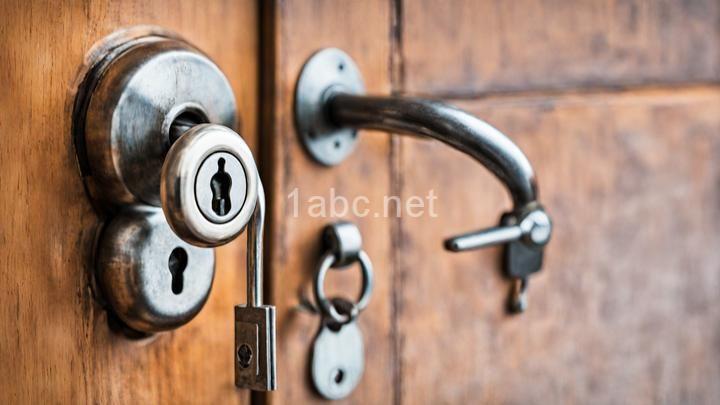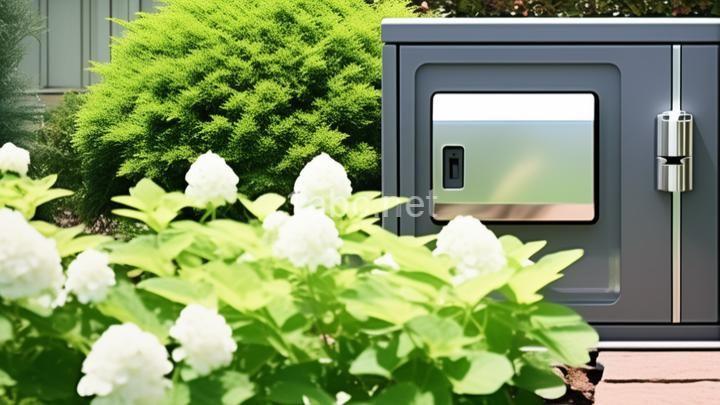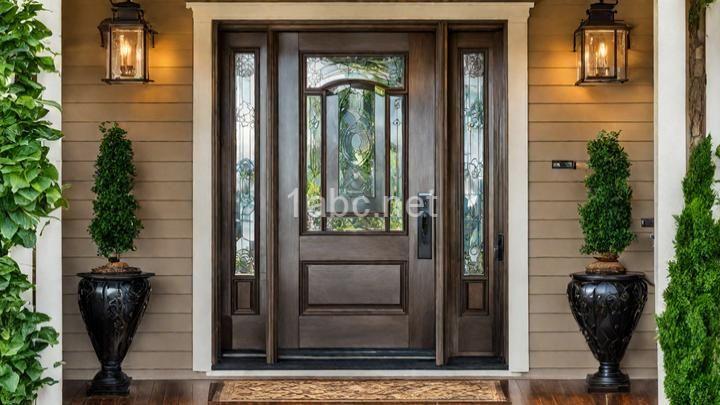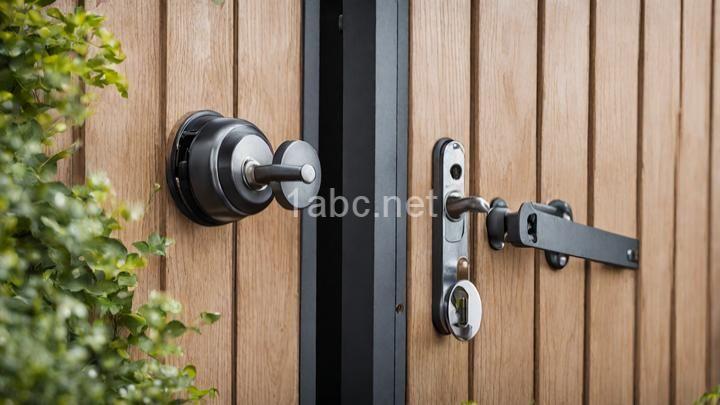The Importance of Regular Lock Maintenance: Tips to Keep Your Home Secure
Introduction:
I. Understanding the Role of Locks in Home Security:
II. Signs That Your Locks Need Maintenance:
III. How to Maintain Your Locks:
1. Cleaning and Lubricating:
2. Tightening Loose Parts:
3. Testing and Adjusting Alignment:
IV. Additional Tips for Enhancing Home Security:
1. Upgrading to High-Security Locks:
2. Utilizing Keyless Entry Systems:
V. Hiring Professional Locksmith Services:
Conclusion:

Introduction:
Hey there, fellow homeowners! Today, we're going to talk about a topic that might not be the most glamorous, but is definitely crucial for the safety and security of your home - lock maintenance! Now, I know what you're thinking - locks? Really? But trust me, investing a little time and effort into regular lock maintenance can go a long way in keeping your home secure. So, let's dive into the world of locks and learn why they deserve some TLC.
I. Understanding the Role of Locks in Home Security:
When it comes to safeguarding our homes, locks play a vital role. They are the first line of defense against potential intruders, and their effectiveness can make all the difference. By keeping our locks in good condition, we can ensure that they are performing at their best, providing us with peace of mind and keeping our loved ones and belongings safe.
II. Signs That Your Locks Need Maintenance:
Now that we understand the importance of maintaining our locks, let's talk about how we can identify when they need some attention. There are a few common signs that indicate your locks might be in need of maintenance. If you notice any of the following, it's time to roll up your sleeves and give your locks some love:
-
Difficulty in operating the lock: If your key suddenly becomes difficult to insert or turn, it could be a sign that your lock needs cleaning, lubrication, or adjustment.
-
Loose or wobbly lock: A lock that feels loose or wobbly is a clear indication that some components might have become loose over time. It's important to address this issue promptly to maintain the lock's effectiveness.
-
Key sticking or jamming: If you find yourself struggling to insert or remove your key smoothly, it's a good idea to inspect the lock for any debris or damage that might be causing the issue.
III. How to Maintain Your Locks:
Now that we know when our locks need attention, let's get into the nitty-gritty of lock maintenance. Here are some practical tips to help you keep your locks in tip-top shape:
1. Cleaning and Lubricating:
Cleaning your locks regularly is essential for their longevity and functionality. Start by removing any dirt or debris using a soft brush or compressed air. Then, apply a small amount of lock-specific cleaning solution and gently wipe away any grime. After cleaning, it's time to lubricate the lock. Use a graphite-based lubricant or silicone spray to ensure smooth operation. Remember, avoid using oil-based lubricants as they can attract dirt and cause more harm than good.
2. Tightening Loose Parts:
Over time, the components of your lock can become loose due to regular use. It's important to check for any loose parts and tighten them accordingly. This includes screws, bolts, and any other fasteners. A simple screwdriver or wrench should do the trick. Just be sure not to overtighten, as this can cause damage.
3. Testing and Adjusting Alignment:
Lock alignment is crucial for proper operation. To test the alignment, insert and turn your key gently. If you notice any resistance or difficulty, it might be a sign of misalignment. To adjust the alignment, loosen the screws holding the lock in place and make small adjustments until the lock operates smoothly. Once you're satisfied with the alignment, tighten the screws back up.
IV. Additional Tips for Enhancing Home Security:
While regular lock maintenance is essential, there are additional measures you can take to enhance the security of your home. Here are a couple of ideas to consider:
1. Upgrading to High-Security Locks:
If you're looking to take your home security to the next level, consider upgrading to high-security locks. These locks are designed with advanced features to make them more resistant to picking, drilling, and other common break-in techniques. Look for reputable brands or consult a professional locksmith to help you choose the right high-security locks for your needs.
2. Utilizing Keyless Entry Systems:
Keyless entry systems offer a convenient and secure alternative to traditional locks. With these systems, you can enter your home using a code, fingerprint, or even a smartphone app. They eliminate the need for physical keys and provide added flexibility and control over access to your home. If you're interested in exploring keyless entry systems, do some research, and consider consulting a professional for installation guidance.
V. Hiring Professional Locksmith Services:
While regular maintenance can go a long way in keeping your locks in good shape, there may come a time when you need the assistance of a professional locksmith. Whether it's a complex lock issue or you simply want to upgrade your security system, a locksmith can provide expertise and ensure the job is done right. When seeking locksmith services, it's important to do your due diligence and find a reputable and reliable provider in your area.
Conclusion:
Congratulations, you made it through the world of lock maintenance! We hope this article has shed some light on the importance of regularly maintaining your locks for home security. Remember, by investing a little time and effort into lock maintenance, you can enhance the effectiveness of your locks and keep your home safe and secure. So, go ahead and show your locks some love! If you have any questions or want to share your own lock maintenance tips, feel free to drop us a comment below. Stay safe and secure, friends!
**Disclaimer: The information provided in this article is for educational purposes only and should not be considered as professional advice. Always consult a qualified locksmith for personalized assistance with your specific lock and security needs.
FREQUENTLY ASKED QUESTIONS
Why is regular lock maintenance important?
Regular lock maintenance is important for several reasons. First and foremost, it helps to ensure that your locks are functioning properly and securely. Over time, locks can become worn or damaged, which can compromise their effectiveness in keeping your property safe. By regularly maintaining your locks, you can identify and address any issues before they escalate into bigger problems.Another reason why regular lock maintenance is important is to prevent lockouts. Lockouts can be incredibly frustrating and inconvenient, especially if you find yourself locked out of your home or car at an inconvenient time. By regularly maintaining your locks, you can help to prevent any issues that may lead to a lockout, such as a key getting stuck or a lock mechanism becoming jammed.
Regular lock maintenance also helps to prolong the lifespan of your locks. Like any mechanical device, locks require regular care and attention to ensure they continue to function properly. By lubricating the lock mechanism, cleaning out any dirt or debris, and tightening any loose screws, you can help to extend the life of your locks and avoid the need for costly replacements.
In addition, regular lock maintenance can provide you with peace of mind. Knowing that your locks are in good working order can give you confidence in the security of your home or business. It can also help to deter potential burglars, as a well-maintained lock is more difficult to pick or force open.
Overall, regular lock maintenance is essential for keeping your locks functioning properly, preventing lockouts, extending the lifespan of your locks, and ensuring the security of your property. By taking the time to care for your locks, you can avoid unnecessary headaches and expenses down the line.
How often should I perform lock maintenance?
To keep your locks in optimal condition, it is recommended to perform lock maintenance at least once every six months. Regular maintenance helps prevent issues such as rust, jamming, or malfunctioning. However, the frequency of maintenance may vary depending on factors such as the type of lock, its location, and the level of usage. If you notice any signs of wear or if your lock is not functioning properly, it is advisable to address the issue promptly and seek professional assistance if needed. Remember, a well-maintained lock is key to ensuring the security and longevity of your property.
What are some signs that my locks need maintenance?
There are several signs that indicate your locks may need maintenance. Here are a few key indicators to look out for:
-
Difficulty in turning the key: If you're struggling to insert or turn the key smoothly, it could be a sign that your lock needs attention. This could be due to debris buildup, worn-out internal components, or misalignment.
-
Stiff or loose lock mechanism: If the lock feels stiff or loose when you operate it, it's a clear indication that maintenance is required. Stiffness may be caused by rust, lack of lubrication, or worn-out parts. A loose lock mechanism could be the result of loose screws or internal damage.
-
Key breakage or bending: If your key frequently bends or breaks inside the lock, it's a sign that the lock may be faulty or in need of maintenance. This could be due to worn-out pins, misalignment, or other internal issues.
-
Jamming or sticking: If the lock frequently jams or sticks when you try to lock or unlock it, it's a strong indication that maintenance is necessary. This can occur due to dirt, debris, or worn-out components that impede the smooth functioning of the lock.
-
Unusual sounds or grinding: If you hear unusual sounds like grinding or scraping when operating the lock, it's a sign that something is amiss. This could be a result of worn-out or damaged parts that require attention.
It's important to address these signs promptly to avoid further damage or potential lock failure. If you notice any of these indicators, it's recommended to consult a professional locksmith who can assess the situation and provide the necessary maintenance or repairs.
Can I perform lock maintenance myself, or should I hire a professional?
Performing lock maintenance can be done by yourself or by hiring a professional, depending on your comfort level and the complexity of the task. If you have experience and knowledge about locks, you may feel confident in taking on the maintenance yourself. However, it is important to note that certain lock issues may require technical expertise and specialized tools, which a professional locksmith can provide. Additionally, hiring a professional ensures that the maintenance is done correctly and can help prevent any further damage to the lock. Ultimately, the decision to perform lock maintenance yourself or hire a professional depends on your skills, resources, and the specific maintenance needs of your lock.




